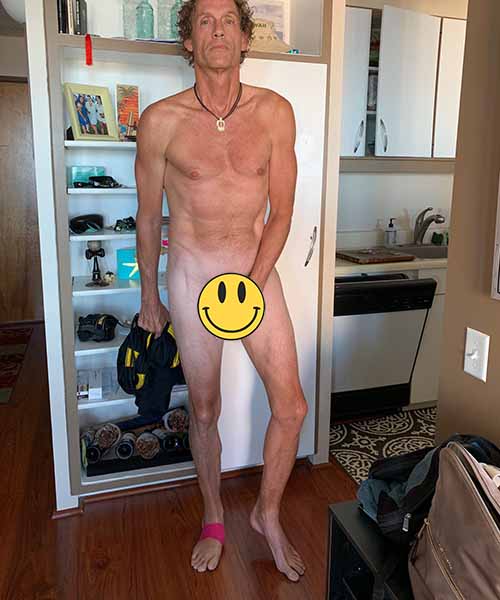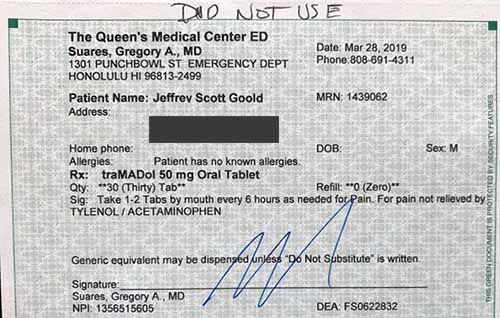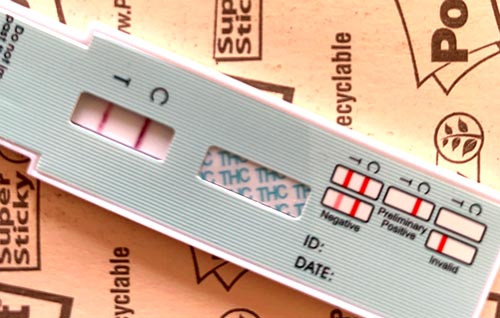HECO Women Coerce & Recklessly Endanger Scott Goold
Coercion and Retaliation
Hawaiian Electric appears to have done everything in their power to ensure Scott Goold is not treated kindly in Hawai'i. Goold claimed Hawaiian Electric was squandering ratepayer resources in March 2019, a similar claim made by ValueAct Capital Management just months later. The PUC also criticized HECO over operations and maintenance costs.
Scott attempted to have a conversation internally, but Hawaiian Electric refused to speak with him. Scott expanded the scope of his comments — Hawaiian Electric responded with coercive demands and retaliatory behavior.
Hawaiian Electric's workforce is over 70 percent male, but the corporate strategy beginning with former HEI CEO & president Constance Hee Lau has been to overweight women in management.
Scott Goold supported CEO Lau — until female executives wrongly terminated his employment due to their incompetence and discriminatory behavior. The people of Hawaai'i have extended great privilege to management; where is the responsible behavior?

With that great privilege comes great responsibility.
Scott's history documents corporate waste. HECO needed a specialized database analyst (DBA) to assist with a ten-year IT security upgrade for island-wide servers and applications. The IT department spent some two years searching for the appropriate candidate — frequently paying 2-3 times the cost of an internal employee by hiring outsourced contract employees.
Scott was the perfect fit. As an internal position opened, the department rushed to transition Scott to internal from contract employee to save ratepayers the higher salary requirements. Then HECO fired Scott wrongfully. All training costs and efforts were wasted.
More importantly, the IT department hired Scott in August 2018 to give the workgroup five DBAs temporarily, as they were behind in the security migration upgrades and facing a critical deadline. One DBA dropped out in January 2019.
The departure opened a slot for Scott, as he was a perfect long-term fit for the department. However, senior management then terminated Scott February 25, 2019, leaving the unit at 60 percent strength.
This example illustrates the common employment situation in Hawai'i. Never enough staff; always missing key personnel. And, HECO's negligence and discrimination is why so many systems stay broke.
The seriousness of HECO's personnel failure can't be overstated. The company selected Scott to secure the entire IT backbone across O'ahu, Maui and Big Island. Hackers from Kim Jong-un's North Korea regime or Violent Vlad's Russia constantly seek vulnerabilities. The foolishness of HECO put U.S. Pacific defenses at risk.
Connie Lau, president and CEO of Hawaiian Electric Industries, said getting upbraided by regulators occasionally is part of running a public utility: "It’s our job to manage costs well. But we’re not immune to criticism." [source]
Corporate officials aren't as tolerant of a former employee. Company supporters continue to torture Scott Goold for speaking out.
Nevertheless, the campaign by Goold and ValueAct continued and has caused a buzz in Hawaii’s energy community. Hawaiian Electric seems to be responding.
Jeff Ubben, ValueAct Capital Management founder and chairman, and Spring Fund's co-portfolio manager, a San Francisco hedge fund that holds a $50 million position in Hawaiian Electric Industries Inc., said in 2019, that Hawaiian Electric management was doing such a bad job that the board needed to hire someone from outside of the company to succeed HEI’s chief executive, Constance Lau, when she stepped down.

“I firmly believe the best candidate for this crucial leadership role will be found outside of the company.” Jeffrey W. Ubben
In fact, the entire directorship at Hawaiian Electric managing HEI and HECO when the company fired Scott Goold has now been replaced. However, Hawaiian Electric continues to in-breed. Both Scott W.H. Seu and Shelee M.T. Kimura were internal selections. Appears the company is afraid to let outsiders know how bad conditions really are.
Hawaiian Electric Board 2019

Hawaiian Electric Board 2022

*Note: This Code of Conduct is identical to the version dated Nov. 29, 2021 other than the replacement of Constance H. Lau with Scott W.H. Seu as HEI President and CEO and the replacement of Scott W.H. Seu with Shelee M.T. Kimura as Hawaiian Electric President and CEO.
Un-Hawaiian Behavior
“We just kind of felt we needed to toss the hot potato into the community, for the community to think about, because everybody in the community is affected by the rates,” Allison Bennington, chief global affairs officer of Ubben’s firm, ValueAct Capital, said later.
Bennington has since acknowledged the letter was “un-Hawaiian,” perhaps too frankly critical for Hawaii’s business community and a culture that values harmony and non-confrontation. [source]
Scott Goold believes Hawaiian Electric was "un-Hawaiian" with him. Cannabis is Hawaiian. Opioid medications are not. Firing a human being without discussion is "un-Hawaiian." Destroying an excellent employee's professional reputation is "un-Hawaiian."
On February 27, 2019, Scott wrote to HECO management in an attempt to be Hawaiian and resolve this issue [download]:
I’m an imperfect human being. We’re all imperfect. HECO likewise isn’t a perfect company. I am sorry for this situation. I ask HECO to be sorry as well. We have an amazing relationship. We are doing excellent work. We make an awesome team and we have much work to do going forward together.
Ms. Dear may have made a mistake. Shana may have made mistakes. I may have made mistakes. The legal team may have made mistakes. We could sort this out litigiously in a hostile environment. I don’t believe this is the preferred choice by any of us. This isn’t aloha. This isn’t the Hawaiian way.
Concluding by phone with Shana today, I asked for a meeting. I adore the Hawaiian tradition of ho’oponopono. What a sophisticated means of dispute resolution! There is no wise reason to break up this team. This minor issue can be easily resolved if we have the will to meet and talk with each other.
This is an amazing company staffed by tremendously talented and dedicated people. Please allow our greatness to shine at this challenging time. This situation offers us an opportunity to reveal our true character!
Aloha and mahalo!
Hawaiian Electric REFUSED to speak with Scott Goold. Bennington should demand Hawaiian Electric engage harmoniously and non-confrontationally with the people who work for the company — not simply the executive management board.
Scott Lost about 20 Pounds Detoxing Unsafely
Around the first of April, Scott weighed about 195lbs. With the conditional offer to return to duty with HECO if he completely detoxed, Scott went on a starvation diet eating eight (8) eggs, one slice pineapple and one small bowl of rice — per day. Although injured, Scott did his best to exercise to help lose body fat.
Scott also spent extended time in a hot jacuzzi to reduce body fat. About May 5, 2019, Scott reported to his wife that he had collapsed and nearly passed out in the jacuzzi. Scott was so weak, hadn't slept much in weeks and was suffering tremendous pain. The photo below was taken May 12, 2019. Scott had lost about 20lbs!

Reckless Endangerment of Scott Goold
HECO fired Scott Goold on February 25, 2019. HR director Shana Buco called Scott about 11:30am. Told Scott that his drug screen indicated positive for cannabis, and that the company considered cannabis to be an illegal drug.
Hawaiian Electric attorneys Thao Tran and Susan Li stated, "Like the ADA, the HAR relating to disability discrimination, promulgated to implement HRS Chapter 378, provides that the protection of the discrimination statute does not apply to persons who are currently engaged in the illegal use of drugs. HAR § 12-46-19.

Buco claimed Scott presented a danger to coworkers, the company and general public, and that the drug screen suggested Scott had been intoxicated or impaired at work.
Scott re-iterated he used medical cannabis for his injuries and disability, as Scott had informed Elizabeth Dear on February 14, 2019. He explained his treatment plan, as he had disclosed to Dear. Scott medicates only at night — never before or during work — to reduce his severe chronic pain and allow him to sleep.
Buco demanded Scott stop all work, surrender his employee badge, gather his personal belongings and exit the building immediately. Buco told Scott he was no longer eligible to work for Hawaiian Electric in any capacity.
Don't respond to outstanding phone calls; or complete email requests; or handoff projects; or update colleagues. Short, medium and long term projects. Pau! Dozens of coworkers in need. Get out! Chaos.
In tears, Scott asked to speak with HECO's legal or complaince representatives. Buco denied Scott's request.
The next day, February 26, 2019, Scott emailed Buco:
Aloha Shana,
When we talked yesterday, I asked to speak with a company legal rep. You told me someone would call. Nobody has. I’m extremely confused. You never told me HECO didn’t allow Medical Cannabis. Nobody informed me. Even when I notified Ms. Deer (sic) she didn’t say anything. I was given the Code of Conduct when I first arrived. It doesn’t suggest legal medical cannabis is prohibited. I love my job. I would do anything to keep it. Had you or someone told me, I could have switched to another pain med. I wasn’t trying to violate company policy.
Buco reached out to Scott the following day, February 27, 2019. Scott summarized the conversation [download], but HECO refused to allow Scott to speak with legal or compliance officials.
Scott had pleaded with Buco: I can switch pain analgesics at this time and be safe to take a drug screen when (if) I get a second chance. We all deserve a second chance, don’t we?
No second chance for Scott. HECO legal officials refused to speak with him.
Scott begged for aloha and the Hawaiian way of non-confrontation and harmonious interaction: Can’t we discuss this? I’m not sure why HECO is shutting me out. We have a good relationship. Silence forces me to seek legal assistance. This isn’t the preferred direction. The aloha way is to talk with each other. Maybe a session of ho’oponopono would be good for all of us. Forgiveness allows everyone to move forward amicably. This is also part of ‘imi pono. We have a responsibility to strive for righteous. Don’t you agree?
We have a responsibility to strive for righteousness, don’t we? Look forward to hearing from you!
HECO refused to speak with Scott. Scott became suicidal. He was distraught, hopeless, devastated, humiliated and suffering deep shame.
Too often we observe a disgruntled or terminated employee return to the job site and kill coworkers. Scott isn't that type of person. Scott stood on the ledge of his 25th floor window contemplating killing himself. Society doesn't care when a male loses his job.
HECO Forces Goold to Hire Attorney
Refusing to speak with Scott, the company forced him to hire an attorney. Joseph T. Rosenbaum sent a demand letter March 25, 2019 — a full month had passed while Scott's IT team desperately needed his assistance.
HECO responded on April 12, 2019, and demanded Scott provide a negative drug test no more than thirty (30) days from executive of the agreement, and clarified, "The above offer will expire unless accepted in writing and received by our office on or before Monday, April 22, 2019 at 4:00p.m. HST."

HECO's offer was coercive, as they didn't give Scott sufficient time to detox the cannabis residue, THC-COOH, from his body or speak with medical professionals. Scott stopped use of his medication when he received the letter on April 12, 2019. Scott was willing to comply. HECO demanded Scott sign immediately.
However, to present a negative urine screen in 30-days, HECO denied Scott an opportunity to taper off his long-term pain medication. HECO required Scott to detox "cold turkey."
The active ingredient in medical cannabis is Delta THC, which causes the "high." THC-COOH is a non-intoxicating, non-pharmacological-active by-product that resides in fat stores of the user. To detox completely, Scott could not simply stop using medical cannabis — Scott had to remove ALL his body fat!
Attorney Rosenbaum was able to convince Thao Tran and Susan Li, HECO attorneys, that 30-days was unreasonable. The HECO attorneys offered 45 days.
As Scott had never been required to detox, he consulted with a local expert. The medical professional claimed a complete detox for a long-term medical patient could take up to six months [download]. He also warned Scott about attempting a cold turkey detox.
HECO's attorneys refused to speak with Scott's medical team, and demanded, "Mr. Goold will be allowed not more than ninety (90) calendar days to provide a negative drug test result from the execution of this agreement. During this 90-day period, Mr. Goold is required to provide a drug test result every thirty (30) calendar days from the execution of this agreement showing that the amount of cannabis and its components are decreasing with each test."

HECO attorneys had zero medical understanding of the detox process. The required urine screen would not show that the amount of cannabis and its components were increasing or decreasing with each test. HECO relied on attorneys, not doctors.
From: Joseph T. Rosenbaum, jtr@frlawhi.com
Sent: Monday, April 29, 2019 2:49 PM
To: Tran, Thao, thao.tran@hawaiianelectric.com
Mr. Goold spoke with an expert in the field and there is no guarantee that the marijuana metabolites [THC-COOH] will leave his system in a certain time period short of possibly 180 days. Therefore, we wanted to see if the company is interested in providing Mr. Goold a waiver for the medical marijuana in his system until it can be completely flushed in order to resolve the case and get him back to work. I have information that HELCO has provided an employee with a medical marijuana use waiver in the past.Let me know.
Thanks,
Joe
Scott had cold turkey stopped using medical cannabis on April 12, 2019. Not only was Scott injured and disabled, an impatient motorist had splattered him all over the pavement on March 28, 2019. EMTs had to rush Scott to Queens, where they discovered the accident had broken Scott's left pelvis, dislocated his left shoulder and road rashed the left side of his body.

Scott had turned down the March 28, 2019, prescription for the opioid Tramadol, and used medical cannabis. As Scott desperately wanted to return to duty, he stopped use of ALL pain relievers and medications. The pain Scott suffered was excruciating!
Around the first of April, Scott weighed about 195lbs. With the offer to return to work, Scott went on a starvation diet eating eight (8) eggs, one slice pineapple and one small bowl of rice — per day. Although injured, Scott did his best to workout to help lose body fat.
Scott also spent extended time in a hot jacuzzi to reduce body fat. About May 5, 2019, Scott reported to his wife that he had collapsed and nearly passed out in the jacuzzi. Scott was so weak, hadn't slept much in weeks and was suffering tremendous pain. Scott had lost about 20lbs! (photo left)
Yet on May 16, 2019, Scott produced a urine sample that was negative for THC-COOH. Scott had done it! Through extreme dieting, limited exercise and avoidance of all pain medications, Scott detoxed in 34 days.

However, Hawaiian Electric had walked away and ended their discussions with Scott on May 3, 2019. They nearly killed him. Although the attorneys had recklessly endangered Scott, Scott didn't quit! Scott wanted to return to service. And, Scott hasn't quit for four years. Scott Goold simply wants to work.
From: Tran, Thao, thao.tran@hawaiianelectric.com
Sent: Friday, May 3, 2019 12:16 PM
To: 'Joseph T. Rosenbaum' jtr@frlawhi.com
Cc: 'Christina Michailidis' ejfujiwara.paralegal@gmail.com; 'Elizabeth Jubin Fujiwara' ejf@frlawhi.com
Subject: RE: Scott Goold
Hi Joe:
Thank you for your email and the proposed counteroffer. This is to inform you that we reject your counteroffer and, as you know, our offer is off the table as the deadline to respond to that offer has passed ...
Thank you,
Thao
THAO T. TRAN
Senior Associate General Counsel
HRS §707-713 Reckless endangering in the first degree. (1) A person commits the offense of reckless endangering in the first degree if the person employs widely dangerous means in a manner which recklessly places another person in danger of death or serious bodily injury or intentionally fires a firearm in a manner which recklessly places another person in danger of death or serious bodily injury.
(2) Reckless endangering in the first degree is a class C felony. [L 1972, c 9, pt of §1; am L 1978, c 215, §1; am L 1988, c 285, §1; gen ch 1992]